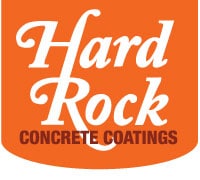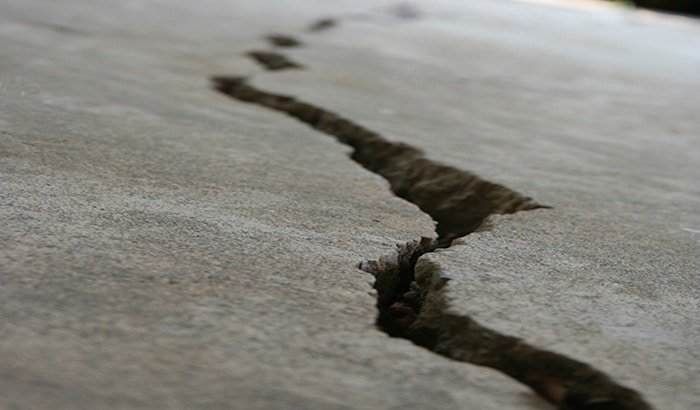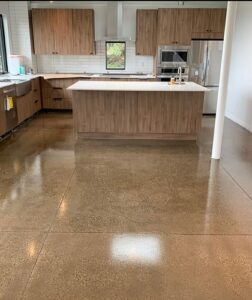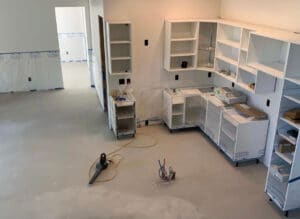If you’ve spotted Concrete cracks in your driveway or floor you may be wondering, do they pose potential dangers or are they just an eyesore?
What Causes Concrete to Crack?
There are multiple factors that can cause concrete to crack, namely:
- Temperature- drastic warm and cold temperature changes can cause concrete to expand and contract. Over time, this movement can pose stress on the concrete causing it to crack.
- Excessive weight- although concrete is a strong building material, just like everything else it too has its limitations. When the concrete has held too much weight for a long period of time this can cause it to crack.
- Premature drying- when the concrete dries prematurely it can leave behind crazing or crusting cracks. Although these cracks are unsightly, they do not necessarily compromise the structural integrity of the concrete.
- Settling- as the ground underneath the concrete settles, this can cause the concrete to shift as well, sometimes leading to cracks. If the subgrade underneath your concrete has not been adequately compacted, it is likely that you will experience settling.
What are the Dangers?
Although not all concrete cracks are problematic, larger cracks can pose many potential dangers if left unaddressed. Namely:
- Further damage to the concrete- if the crack in the concrete widens past an eighth of an inch this presents a couple of opportunities for further damage to the concrete, including water rusting the rebar, and water freezing inside the crack and weakening the concrete.
- Mold- if water is able to settle into a crack and remain there for a long period of time, it is possible for mold to form. Mold can pose health concerns if not removed in a timely manner.
- Tripping hazard- uneven cracks in concrete can pose a tripping hazard, which could be a source of potential injury.
- Damage to cars- particularly bad cracks can scrape the bottoms of cars, causing damage that could be costly to repair.
Ultimately, it is best to repair small cracks before they pose a larger issue. Bigger cracks pose more risks to both you and the concrete and can be costlier to repair.
Prevention
Crack prevention begins before the concrete is even laid. At Hard Rock Concrete Coatings we start with a sound, compacted subgrade in order to prevent shifting. We pride ourselves in using the highest-quality concrete mixes and materials in order to ensure we get it right the first time we pour. We take our time, making sure the concrete has had plenty of time to cure before we move on. We take every precaution possible to make sure that you will be able to enjoy your concrete for years to come.
Contact Hard Rock Concrete Coatings
If you have concrete cracks don’t wait for potential dangers to surface before you get expert help. Contact us at Hard Rock Concrete Coatings today for a quote, we serve Salt Lake County, Utah, and we will either lay your concrete right the first time or repair it so that it’s looking better than ever.




